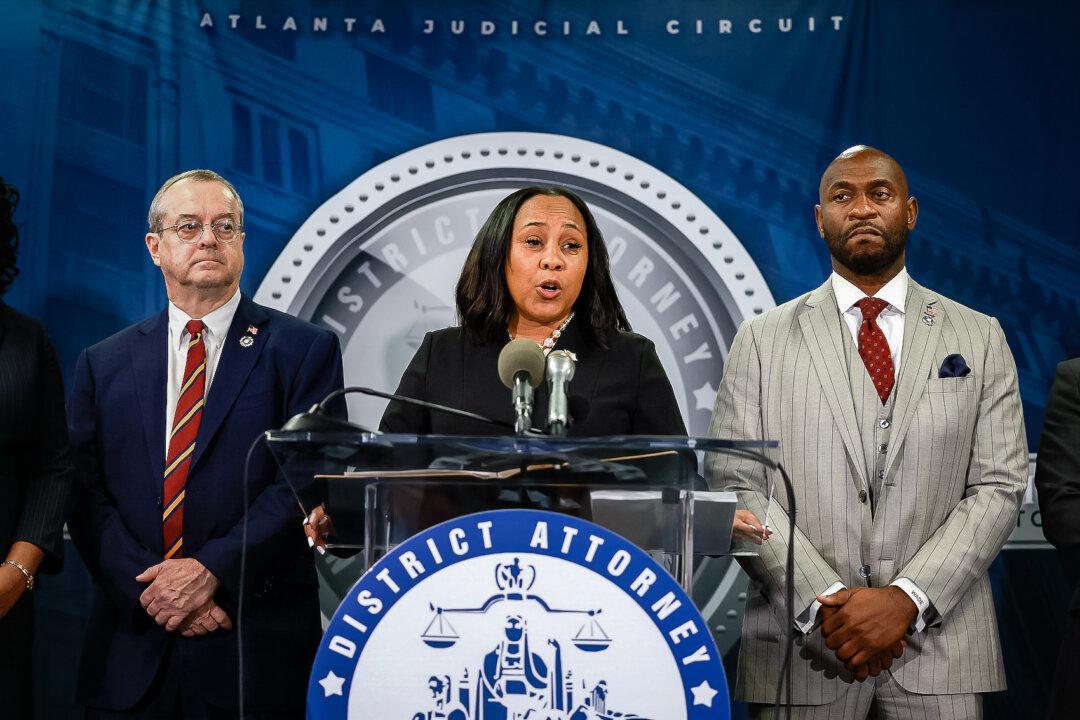Georgia Gov. Brian Kemp has signed a bill into law that revives an oversight panel with powers to discipline and remove wayward county prosecutors, and which could potentially target alleged misconduct by Fulton County District Attorney Fani Willis in her case against former President Donald Trump.
Mr. Kemp signed SB 332 into law on March 13, saying at a signing ceremony that the community suffers and property is put at risk when “out-of-touch” public prosecutors put politics ahead of public safety.





